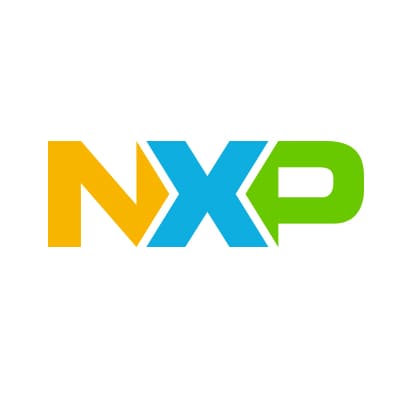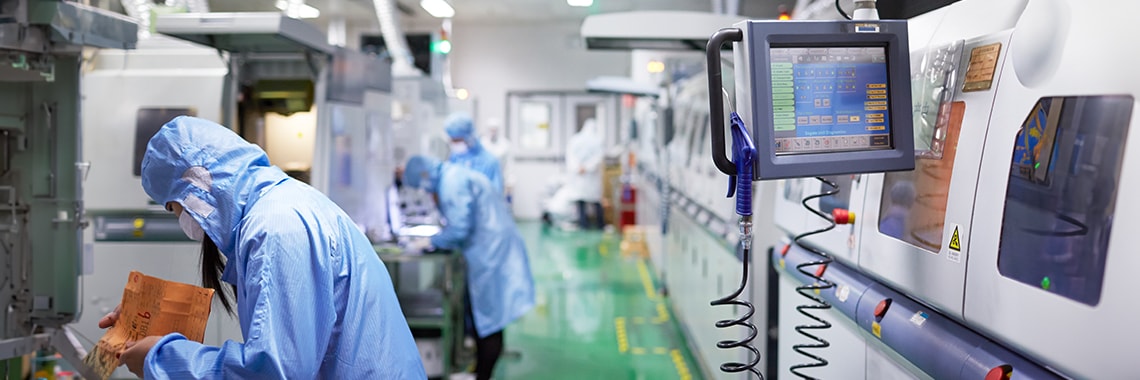At NXP, our core values are all about striving for more inclusivity, acceptance and equality. As part of our ongoing commitment to promoting equality, NXP works toward protecting workers’ rights and fighting modern slavery.
We look at NXP’s anti-slavery activities by talking to Eric-Paul Schat, Sr. Director Sustainability and Human Rights and NXP’s Chief Human Rights Officer. Eric-Paul and his team are responsible for producing NXP’s
Annual Modern Slavery Report, which was released in April.
FEATURING

Eric-Paul Schat
Senior Director Sustainability and Human Rights, NXP Semiconductors

NXP: How do you define modern slavery in relation to NXP’s activities?
Eric-Paul: Modern slavery refers to exploitative situations which a person cannot refuse or leave because of
threats, violence, coercion, deception or abuse of power. Fortunately, we don’t find these serious situations within
NXP.
NXP: Why does NXP take such an active stance in fighting modern slavery?
Eric-Paul: Nobody likes to experience or be linked to human rights abuses, and at NXP, we don’t want our
products made with materials produced using any form of modern slavery. The expectations of stakeholders within our
industry are evolving rapidly. Our customers, employees and investors expect us to demonstrate respect for human
rights through everyday initiatives and constant re-evaluation.
NXP: Are there also legal obligations?
Eric-Paul: For many years, legislation has required multinational companies to adhere to certain human rights
standards. Companies and their representatives can now be penalized by increasingly stricter legislation, such as the
U.S. Uyghur Forced Labor Prevention
Act , the German Supply Chain Due Diligence Act and the EU Corporate Sustainability Due Diligence Directive .
NXP: What’s your role in NXP’s campaign against modern slavery?
Eric-Paul: One of my roles is to lead NXP’s activities related to human rights, and to set internal standards
and procedures. I also ensure our compliance with regulations and international human rights standards such as the International Labor Organization’s Declaration on Fundamental Principles and Rights at
Work , the UN Guiding Principles on Business and Human Rights and the Universal
Declaration of Human Rights . I have a small team based in Singapore that takes care of the day-to-day
work. They collaborate with third parties like Dignity in Work for All , which allows us to keep a small core team in NXP with additional
resources when needed.
NXP: Who are the major stakeholders NXP collaborates with?
Eric-Paul: Lasting impact can only be made if businesses, governments and civil society work closely together.
Therefore, we work with various players, such as the Responsible Business Alliance (RBA), the world's largest industry coalition dedicated to
responsible business conduct in global supply chains. We also work with the RBA on standards, training and assessment
tools, and I have served on its Board of Directors for six years. We work with many other parties too, including the
Global Business Initiative on Human Rights , the Organization for Economic Co-operation and
Development (OECD), and the United Nations Office of the High Commissioner for Human Rights , to name a few.
 NXP is committed to ensuring that working conditions in our supply chain are safe and
that workers are treated with respect and dignity
NXP is committed to ensuring that working conditions in our supply chain are safe and
that workers are treated with respect and dignity
NXP: How does this collaboration work?
Eric-Paul: Well for example, Sweden’s King Carl Gustaf XVI recently visited our headquarters in Eindhoven. He
and Queen Silvia founded the Global Child Forum , aimed at giving businesses an understanding of how and where their activities may impact children.
We work together with the Forum, and I’ve attended meetings at the Royal Palace. Another good example is during an
OECD conference in May, I spoke to miners from Kenya and Peru, who received funding from the European Partnership for
Responsible Minerals . It was heart-warming to see how these initiatives have helped improve their living
and working conditions and have helped them to get better market access.
Unwavering integrity, values and ethics. NXP's commitment to upholding values of human rights and
ethical practices can be seen in action in our
2023
Modern Slavery Report.
NXP: Does NXP have clearly defined targets when it comes to anti-slavery?
Eric-Paul: NXP has a zero-tolerance policy when it comes to forced labor and human-rights abuses. Where we find
them, we work together with our suppliers and/or other business partners to correct them. It may take time to
remediate the issues, but we are usually successful.
NXP: What kind of issues do you face?
Eric-Paul: We sometimes find situations where workers in our supply chain are forced to work seven days a week
without a day off or for more than 60 hours a week. On average, we resolve more than 85% of all issues within the same
year and 100% of all issues a year later. We’ve only had to break with one or two suppliers unwilling to accept our
human rights standards. We have also been involved in solving cases of debt bondage or retention of documents within
our supply chain. The suppliers in these cases, who violated our standards related to recruitment fees, repaid their
workers and implemented policies and procedures to prevent recurrence.
NXP: Where does NXP focus human rights activities the most?
Eric-Paul: Malaysia remains a challenge for us in many ways. We have a large local supplier base, and almost
every company that manufactures in Malaysia makes use of foreign migrant labor from countries such as Indonesia, Nepal
and Bangladesh. The use of foreign labor usually comes with a higher risk of modern slavery because of the many labor
agencies involved, in both the home country as well as the receiving country. But we also have challenges in countries
like Mainland China, Singapore, Thailand and Japan. Even in the EU and U.S. we have encountered situations where
suppliers have not properly safeguarded human rights.
NXP: What were some of the highlights of our anti-slavery activities in 2023?
Eric-Paul: NXP continues to be called upon to share practical approaches to labor and human rights challenges.
We ranked 38 out of the 1,108 companies in the Global Child Forum Benchmark . The company also established the NXP Human Rights Working
Group to drive the next phase of the NXP Human Rights Program. Furthermore, we reviewed and updated the NXP Human Rights Due Diligence Management System. And 100% of our key suppliers signed our
Supplier Code of Conduct Conformity Statement. There was much more, of course, too much to go into in detail here. If
anyone wants to know more, they can find it in our 2023 Modern Slavery Report..
NXP: What’s next?
Eric-Paul: In the coming years, a lot of our attention will focus on implementing the EU’s Corporate
Sustainability Due Diligence and the EU Corporate Sustainability Reporting Directive, which includes compliancy
requirements for human rights. We are also exploring the concept of a living wage (the minimum income necessary for a
worker to meet their basic needs) and how that may impact NXP and our supply chain. More attention will also be given
to supply chain mapping, so we can really understand who all the upstream actors are between, let’s say, the mine and
the final material delivered to NXP, and all the human rights and environmental risks in that supply chain. We also
need to focus on our downstream supply chain. What are our customers doing with our products? Can our products end up
in applications that are being used for human rights abuses, like public surveillance measures that are not strictly
necessary and proportionate?
NXP: Anything to add?
Eric-Paul: All I can say is that it’s a privilege to work for a company that is genuinely committed to
protecting workers’ and human rights. NXP will continue to do everything within our power to live up to our values and
commitments.



